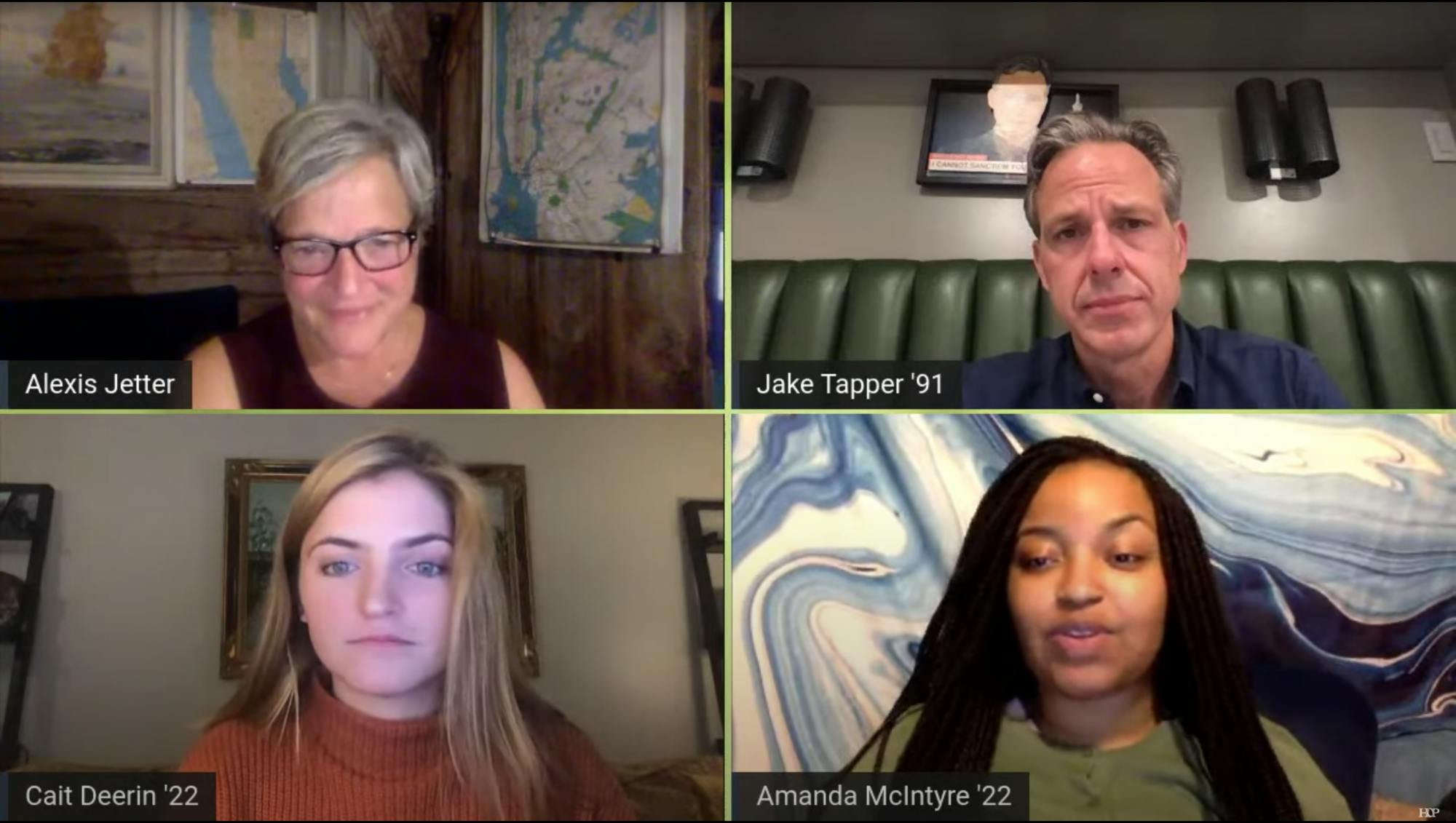On Sept. 24, the Hopkins Center for the Arts’ “Hop at Home'' series hosted Jake Tapper ’91 for a live chat session. Tapper, CNN’s chief Washington correspondent and host of “The Lead With Jake Tapper,” joined students and staff for a Q&A on the movie adaption of his New York Times bestseller, “The Outpost: An Untold Story of American Valor.”
During Thursday’s event, moderated by English and creative writing professor Alexis Jetter, Tapper discussed his career in journalism, the process of writing his book and what it was like to be on the film set during the adaptation. Around 300 people joined the live event, and the show’s recording had reached 700 views as of Sunday evening. The full-length film based on Tapper’s “The Outpost,” free to Dartmouth students, opened for viewing through the Hop website on Thursday.
Tapper’s book, published in 2012, details a 2009 attack on Combat Outpost Keating in which nearly 400 Taliban fighters attacked an outpost in Afghanistan. The attack led to eight American casualties, making it the deadliest battle of the war for the U.S. during that year.
During the event, Tapper, an award-winning political journalist, said that his transition from political journalism to writing “The Outpost” gave him a deeper sense of the sacrifice made by American soldiers.
“It was a profound experience to talk to literally dozens and dozens of people who served and sacrificed, people who lost loved ones at war and to really experience it on that level,” Tapper said.
Brad Carney ’20, a student moderator of the event, said that he was personally contacted by the Hop asking if he could speak at the event. Carney said he knew of Tapper and “The Outpost” prior to the live chat.
“I am a veteran of the Iraq War, and this was a chance to get to connect with somebody who had both experiences in the newsroom in the United States, and then actually went over there,” Carney said.
Carney added that the chance to talk with Tapper gave him a greater understanding of Tapper’s character as a whole.
“Actually getting to talk to someone that you might see on TV a lot but you’ve never actually talked to them humanizes them,” Carney said. “I think that [Tapper] sincerely cares; he knows the families; he knows each individual soldier’s name — it’s definitely a credit to his character and to who he is as a person.”
Tapper said that the movie adaptation, which is based on events in the book, remained mostly loyal to his book but only focused on a small portion of the narrative. He added that it has been an “adjustment” for him to switch from the nonfiction world to the fictionalized world of the film adaptation.
“It's an adjustment [for me] to go from the world of nonfiction to the world of [a] fictionalized or a film version,” Tapper said.
Tapper, who calls himself a “non-ideological” journalist, also spoke to the role of objectivity in the media. He emphasized the importance of presenting the facts and the story, rather than promoting a partisan agenda.
“The job of a journalist is to search for the truth,” Tapper said. “The truth isn't partisan, and the truth isn't necessarily ideological.”
Jetter highlighted these trademark journalistic strategies, which she said include Tapper’s ability to extract the truth from interviewees.
“He makes it a policy of not letting people lie to his face,” Jetter said, in an interview following the event.
Jetter added that Tapper’s persistent, prying nature has made him the subject of criticism among politicians.
“He is someone who has to appear unbiased, [but] if you don’t let people lie to your face, you are considered a biased journalist,” Jetter said. “When the truth is not in the middle, he goes to where the truth is, and that makes him a target.”
Tapper ended with two pieces of advice for Dartmouth students: to accept rejection and to bring enthusiasm to a job.
Hop film director Sydney Stowe said the Hop looked for ways to engage students, staff and the public after it went all-virtual in the spring. She said the live chat format, also called “Small Screen Fun,” allowed speakers to engage with student moderators on YouTube live in a Q&A format.
“That’s what ‘Hop at Home’ came up with, to give people a place to gather over art, but from your living room,” Stowe said.





